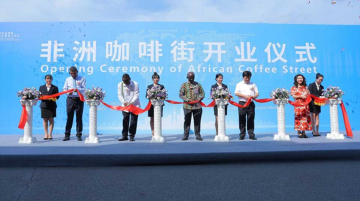Commodity exporting countries in Asia and Africa are facing potentially serious economic consequences due to the sharp drop in Chinese industrial production and the subsequent reduction in commodity purchases, warned Moody’s Investors Services.
While most African countries rely heavily on selling oil, mineral, and timber to Chinese buyers, Moody’s noted that countries with already weak credit profiles, including Zambia and the Republic of Congo, are especially vulnerable if the slump in commodity prices foes on for much longer.











